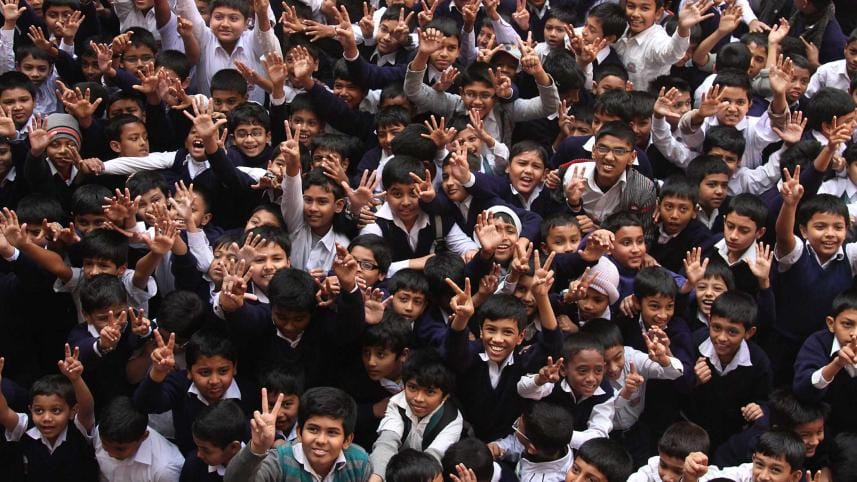PECE Exam Board: What it says about decision-making in education

The Ministry of Primary and Mass Education has doubled down on its insistence not only to continue the nationwide Primary Education Completion Examination (PECE) at the end of Grade 5, but giving it a permanent institutional form by proposing the establishment of an examination board to conduct it. This stand by the ministry raises serious questions about how education decisions are made—and in whose interest.
The primary education authorities have ignored the plea repeatedly made by educationists, ever since it was introduced in 2009, to give up the nationwide public examination at the end of Grade 5. The National Education Policy, 2010 had envisaged primary education to be extended to Grade 8, and a local assessment at the end of Grade 5 at the upazila level. The prolonged school closure due to the Covid-19 pandemic forced the authorities to forego the exam in 2020 and 2021. Meanwhile, a curriculum reform plan for school education, to be introduced in 2023, foresees no public examination before the Secondary School Certificate (SSC) examination at the end of Grade 10.
However, the primary education ministry's plan to establish an exam board, a draft law for which has been circulated for eliciting public comments, flies against all professional and technical judgements. Studies by Education Watch, as well as opinions expressed by educationists, parents and teachers, have detailed how the high-stake public examination for young children fails to add any value, and actually harms both the students and the aims of quality education instead.
The assessment of learning to determine what students have learnt and how schools and teachers are performing in helping students learn is not the issue. It is how this should be done, what should be measured, how it may affect young children, and how the information can be used for improving learning outcomes. It is necessary to find out if students are acquiring the basic foundational skills of reading, writing and counting, critical at the primary school stage, and what can be done to help schools and teachers to do a better job to this end.
The main purpose of assessment at this stage for young children is not to brand them as success or failure, pushing them into a competitive mode, but to take a reading of how the schools and teachers are doing their job. It should be more an assessment of the school system rather than of the children. This is the direction better-performing education systems have moved towards.
The trend is towards formative assessment of students in a classroom by teachers as a part of instruction to help students learn better, and rely on summative assessment of students to measure how the school system is performing. This is a live issue in education discourse and there are lessons and experiences in this regard that have to be taken into account. In Bangladesh, the National Student Assessment surveys undertaken periodically suggest lessons that should be considered. A highly telling point is that the NSA findings reveal that the majority of primary students do not achieve basic literacy and numeracy skills at the end of primary education, in sharp contrast to 90+ percentage success rates in PECE. This is another piece of evidence—if this is needed—that challenges validity and reliability of PECE as an assessment tool.
As the schools resumed operation on September 12, after a loss of two academic years, a group of 10 well-known educationists, in a joint statement, spoke about four urgent steps to put students on track for successful learning (The Daily Star, September 25, 2021).The four actions advocated were: foregoing PECE and JSC and equivalent exams; a rapid assessment in each school of students' grade level preparedness as the classes re-start; prolonging current school year and adopting a September-June school year as part of a medium-term learning recovery and adjustment plan; and supporting teachers to implement the learning recovery plan.
Besides these immediate steps, the 10 educationists urged consideration of essential longer-term reform measures. These are creating conditions for unified quality education for all children up to the SSC level, need for new thinking about teachers and the education workforce, and decentralised and accountable education governance.
The 10 educationists advocated the formation of a permanent statutory education commission, as recommended in the National Education Policy, to guide and oversee the reform efforts. There was not a squeak of response from the two ministries of education on how the critical matters raised by the educationists might be addressed. One wonders if the anxieties expressed and advice offered by the educationists at all registered in the deliberation process of the decision-makers, or whether a rational and systematic deliberation process existed.
Now, a larger number of educationists—36 of them—including many of those who expressed themselves earlier, have called for a "cease and desist" action on PECE. This is the least the authorities must do, and begin a process of considering the other related matters noted above—in a systematic deliberation process. They may even consider inviting those who expressed their concern into the deliberation.
Dr Manzoor Ahmed is professor emeritus at Brac University.




 For all latest news, follow The Daily Star's Google News channel.
For all latest news, follow The Daily Star's Google News channel.
Comments